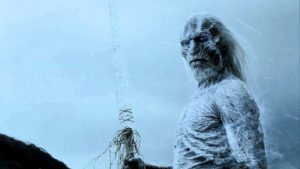
National Grid has reiterated faith in its ability to keep the lights on over winter despite thin margins. The system operator’s winter outlook shows margins (the amount of available power versus the anticipated peak demand) will be extremely thin, at 1.2%.
However, National Grid says it has procured sufficient reserve in terms of generating plant and demand side measures to take the working margin to 5.1%.
These figures are the same as published by National Grid in July.
Providing there are no major unplanned outages over winter, the supply margin suggest the lights will stay on.
However, National Grid stated earlier this year margins the following two winters will be tighter still.
That means National Grid will need to quickly convince more businesses to provide demand side response (DSR) services. The system operator has announced big plans for demand response, aiming to deliver up to half of balancing services from DSR by 2020.
The problem is, the process cannot be rushed.
“Every site needs its time and to be properly understood before it goes in,” Flexitricity founder Dr Alastair Martin told The Energyst. The company manages a portfolio of 300MW that uses businesses’ assets to respond when called upon by National Grid by powering up or down, or switching to back-up generators .
“Yes, I agree that demand side response will grow exponentially. But every participant has to go through their own appraisal of defensive engineering to ensure their participation is respectful of their core business. And not just respectful but subservient,” said Martin.
“That takes engineering knowledge and experience. This is not a sector where somebody can print a business plan, flip their business and quickly make a bunch of money. That is not the sort of investment this industry can honestly attract. We need the people who are in it for the long run.”
Botched implementations will only damage market confidence, he added.
“Any site where it is not done right will remove itself from demand response. But in the delivery of megawatts, it’s the tortoise beats the hare. Doing the substantial work and getting it right is what will give us the best chance,” said Martin. “Not just to meet the numbers – but to hold them.”
Download a free demand-side response report based on the views of The Energyst’s business readers and co-sponsored by National Grid, here.
Related stories
Free download: Demand side response report 2015
National Grid plots superfast grid balancing service
Lord Redesdale ‘puts money on brownouts or blackouts by year end’
Utilitywise bets against Lord Redesdale on blackout risk
National Grid moots demand side response rule changes as winter power margins tighten
National Grid flags demand response changes, urges suppliers and TPIs to deliver
National Grid must simplify demand response to bring in UK businesses
Smart grids ‘require local control and businesses must play or pay’
National Grid launches major demand side push
National Grid ‘delighted’ with demand response but warns over winter tightness
National Grid urges major energy users to provide demand response for winter peak, may pay more
Decc remains ‘confident’ of beating Tempus Energy’s demand-side legal challenge
UK firms with CHP facilities could be paid to stop exporting power
National grid urges big firms to offer demand side response, may pay more
Intelligent district heating grid
Click here to see if you qualify for a free subscription to the print magazine, or to renew.
Follow us at @EnergystMedia. For regular bulletins, sign up for the free newsletter.



